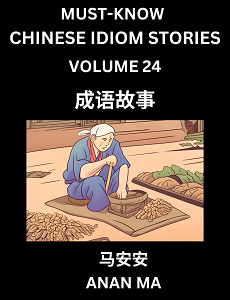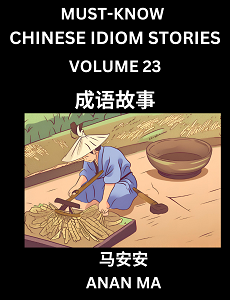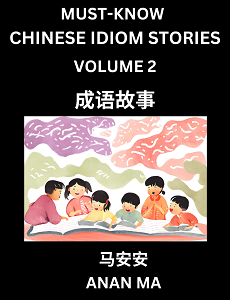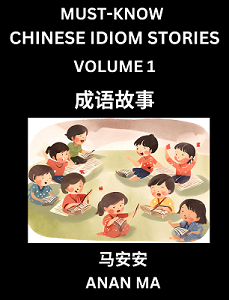Learn Chinese Idiom with Pinyin and English

- Idiom in Chinese-女中尧舜。
- Pinyin of Idiom– nǚ zhōng yáo shùn.
- Idiom’s Meaning in English– This idiom refers to women who possess exceptional wisdom, virtue, and ability, comparable to that of Yao and Shun, two legendary ancient Chinese emperors renowned for their virtue and wisdom. It praises women for their outstanding achievements and contributions in various fields.

Chinese Idiom Stories Books (HSK All Levels):
- Books to Learn Chinese Idiom Stories (Part 1)
- Books to Learn Chinese Idiom Stories (Part 2)
- Books to Learn Chinese Idiom Stories (Part 3)
Learn Chinese Idiom Story in English (成语故事的英文)
In a prosperous modern society, Li Hua stands out as an outstanding female entrepreneur. Not only does she possess exceptional business acumen, but she also devotes herself to public welfare causes, helping vulnerable groups. Under her leadership, the company has achieved remarkable success, creating numerous job opportunities for society. With her wisdom, benevolence, and superior management skills, Li Hua has earned widespread praise and is hailed as a “nǚ zhōng yáo shùn” – a woman comparable to the legendary ancient Chinese emperors Yao and Shun for her virtue and wisdom.

Learn Idiom Story in Chinese (成语故事)
关于“女中尧舜”这个成语,虽然没有确切的历史故事与之对应,但我们可以编造一个现代的故事来解释这个成语的含义。
故事发生在一个繁荣的现代社会,李华是一位杰出的女企业家。她不仅拥有出色的商业头脑,还积极投身于公益事业,帮助弱势群体。在她的领导下,公司取得了巨大的成功,为社会创造了大量的就业机会。李华以她的智慧、仁爱和卓越的管理能力赢得了人们的广泛赞誉,被誉为“女中尧舜”。

Learn Keywords with English, Simplified Chinese Characters, and Pinyin (关键词)
李华(Lǐ Huá): A prominent female entrepreneur
商业头脑(shāng yè nǎo dɑo): Business acumen
公益事业(gōng yì shì yè): Public welfare cause
弱势群体(ruò shì qún tǐ): Vulnerable groups
智慧(zhì huì): Wisdom
仁爱(rén ài): Benevolence
管理能力(guǎn lǐ néng lì): Management skills

Pinyin of Idiom Story (故事的拼音)
Guānyú “nǚ zhōng yáoshùn” zhège chéngyǔ, suīrán méiyǒu quèqiè de lìshǐ gùshì yǔ zhī duìyìng, dàn wǒmen kěyǐ biānzào yīgè xiàndài de gùshì lái jiěshì zhège chéngyǔ de hányì.
Gùshì fāshēng zài yīgè fánróng de xiàndài shèhuì, lǐ huá shì yī wèi jiéchū de nǚ qǐyè jiā. Tā bùjǐn yǒngyǒu chūsè de shāngyè tóunǎo, hái jījí tóushēn yú gōngyì shìyè, bāngzhù ruòshì qúntǐ. Zài tā de lǐngdǎo xià, gōngsī qǔdéle jùdà de chénggōng, wèi shèhuì chuàngzàole dàliàng de jiùyè jīhuì. Lǐ huá yǐ tā de zhìhuì, rén’ài hé zhuóyuè de guǎnlǐ nénglì yíngdéle rénmen de guǎngfàn zànyù, bèi yù wèi “nǚ zhōng yáoshùn”.




